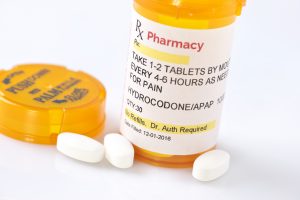What is Hydrocodone?
Additionally, it is sold under the more recognizable brand name Vicodin, a medication that combines hydrocodone and acetaminophen. Hydrocodone can be quite effective, but it could also become habit forming. If your physician prescribes hydrocodone for you, you can take action to prevent serious complications from hydrocodone addiction. First, however, you have to understand why and how hydrocodone gets addictive and the symptoms of hydrocodone addiction.
CAUSES
Hydrocodone addiction
 Hydrocodone is an opioid in a class of drugs called narcotic analgesics. | These medications connect to proteins in the brain and spinal cord called opioid receptors. | Opioids interfere with pain signals going to the mind to change your perception of pain in addition to your emotional reaction to it. When used correctly and for just a brief period, hydrocodone is generally safe and effective.
Hydrocodone is an opioid in a class of drugs called narcotic analgesics. | These medications connect to proteins in the brain and spinal cord called opioid receptors. | Opioids interfere with pain signals going to the mind to change your perception of pain in addition to your emotional reaction to it. When used correctly and for just a brief period, hydrocodone is generally safe and effective.
Some men and women who begin taking hydrocodone as therapy become hooked on the euphoric feeling. Because of this, they use it for longer than recommended. Taking hydrocodone for quite a while can build a tolerance to the medication. This means your body requires more of this drug to feel the same results.
SYMPTOMS
Along with a lesser heartbeat, symptoms of hydrocodone overuse include:-
- nausea or lightheadedness
- nausea and vomiting
- seizures
- anxiety and melancholy
- confusion
- headaches
- ringing in the ears
- blurry vision
PREVENTION
preventing hydrocodone addiction
The best way to stop hydrocodone addiction is to take the medication exactly as your doctor prescribes. Additionally, it is important to record your pain at a journal at the same time you take it. Review your pain journal from time to time to determine how you’re progressing. If you understand your pain is diminishing, let your physician know, even if your prescription has not run out. Your physician might want to lower your dosage gradually and have you stop taking it earlier than anticipated.
If you think you’re beginning to crave the drug even at times when you are feeling minimum pain, talk to your doctor immediately. This is a indication that you’re becoming addicted to hydrocodone.
TREATMENT
Fixing hydrocodone addiction
If you end up taking hydrocodone for longer than prescribed or carrying it in doses that are larger, you might have an addiction. Tell your health care provider immediately. Your physician may have you lower your use slowly as opposed to stopping it suddenly. Stopping suddenly may result in withdrawal complications, such as:
- stress
- difficulty sleeping
- irritability
- unusual sweating
- muscle aches
If you believe you can’t stop on your own, there are lots of programs to assist you. Some of these programs use drugs to help alleviate the withdrawal, but others don’t. The best way for you will depend heavily on the nature of your addiction. A long-term addiction that involves high doses of hydrocodone may involve a longer recovery period than dependence from short-term usage.
A mental health evaluation should be a part of your recovery. People with addictions should be screened for depression and other mental health difficulties. | You also need to think about support teams during and after recovery. Organizations such as Narcotics Anonymous and Alcoholics Anonymous may help you avoid relapse with hydrocodone or a different drug.
TAKEAWAY
Talk to your physician
Hydrocodone may be safe and effective way to treat acute pain, but it may be addictive. Addiction can cause personal issues. It may affect relationships, employment, and other elements of your life. If your doctor has prescribed this medication and you’re concerned about addiction, discuss your concerns. And if you’ve had problems with addiction in the past, a different pain reliever might be a better choice for you. The more you understand about hydrocodone, the better your chances are of preventing dependence.